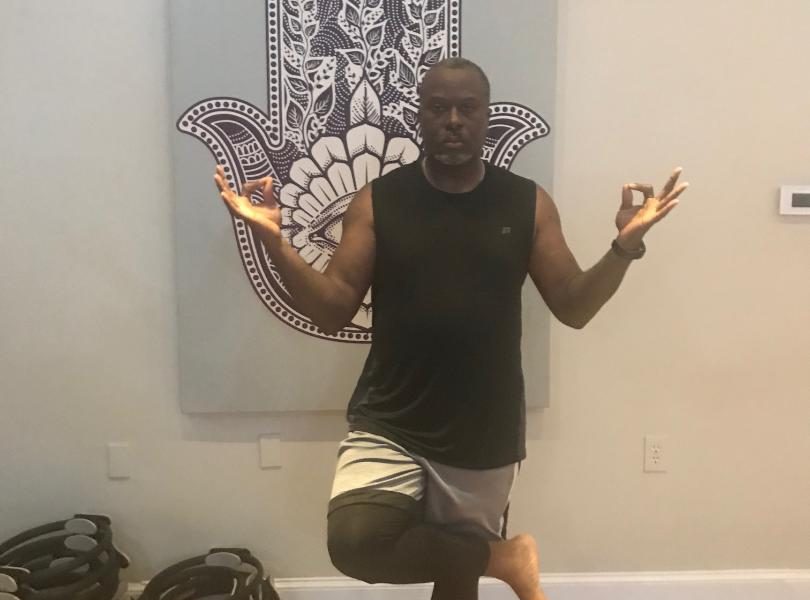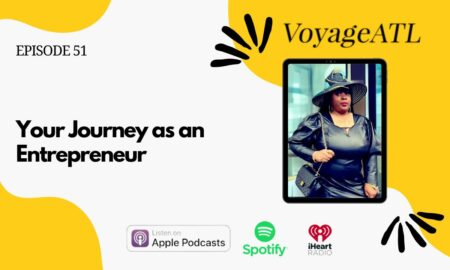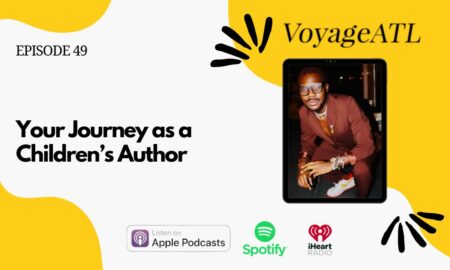

Today we’d like to introduce you to Mark Anthony Peterson.
Mark, let’s start with your story. We’d love to hear how you got started and how the journey has been so far.
I began my entrepreneurial career in 1986 as a junior in high school with the launch of a regional political opinion and news journal called ENForm Magazine. Based in Selma, Alabama, ENForm Magazine sought to fill in a gap left by local newspapers who refused to cover economic and business stories that impacted the Black community. As co-founder and Editor-n-Chief, I helped grow ENForm Magazine to 1,000 subscribers with readers in seventeen states. The Magazine’s board of advisors included noted professors like Cornel West.
In 1988, I launched LNS, Inc. (LNS) as a sophomore on Dartmouth College’s campus. Initially, LNS re-sold health and beauty-aid products to New England area college grocery stores that lacked ethnic diversity in their product offerings. In 1989, LNS acquired food carts from Dartmouth College’s dining services. LNS operated these carts during hours when students lacked food options (Monday – Thursday, 10 pm-1 am and Friday-Sunday 10 pm – 3 am). LNS’s success inspired me to try to acquire a grocery store in my hometown of Linden, Alabama. When the deal fell through, I decided to attend the Amos Tuck School of Business.
After graduating from the Amos Tuck of Business in 1995, I began my corporate career as a strategy consultant with Accenture in Atlanta, Georgia. During my six years with Accenture, I focused on Financial Services, Retail/Consumer Products, Electric Utilities, and eCommerce with a concentration on PKI technology and identity authentication.
As a side project, I launched PrideRock Café, a fast-food restaurant in 1996 in Marengo County, Alabama. The restaurant offered home delivery, a service no other establishment in the area offered. Delivery services extended the restaurants reached and gave me my first experience with the concept of “Dark Dining,” i.e., no in-store dining just a kitchen that served delivery orders.
In 2000, I accepted a job with ChoicePoint as the VP of Authentication Services and Executive in Charge of the company’s incubator. In this role, I helped to build B-to-C platforms that utilized the company’s data to authenticate user identities in high-risk transactions.
In 2003, I left ChoicePoint to launch PrideRock Holding Company, Inc. (“PrideRock”), a biometric authentication services company. PrideRock was an early pioneer of Sharing and Gig Economy principles. PrideRock built and deployed digital fingerprint capture solutions in Mail Parcel Centers including UPS Stores. We developed this distributed SAAS model and sold access to our fingerprint systems to banks, brokerages, school districts, local, state and federal government agencies. We grew our collection network to over five hundred (500) domestic locations and one hundred (100) international locations. In 2012, we sold PrideRock to First American after achieving a $20M run-rate for the business and having three of the top four US banks as global clients.
In 2013, I authored Guerrillapreneur: Small Business Strategy for Davids Wanting To Defeat Goliaths. The book captured many of the strategies I used to compete against global giants in the fingerprint authentication services segment. Today, I host two podcasts that build on my experiences, Guerrillapreneur: The Art of Waging Small Business Warfare (https://www.spreaker.com/show/guerrillapreneur-podcast) and Gigging: Everything and the Sharing Economy (https://www.spreaker.com/show/gigging-everything-sharing-economy). In that same year, I founded Ceyero Consulting to help start-ups and small business scale. I also launched the Selma Business Pitch Contest in Selma, Alabama to encourage entrepreneurship in the Black Belt South. During that time, I served as an adjunct professor of Entrepreneurship at Concordia College.
In 2014, I returned my focus to disruptive grocery shopping solutions. The first attempt was an App called “List Genie.” List Genie helped shopper developed a shopping budget real-time so that there were no surprises at the POS during check-out. The second App was called “Rescue.” Rescue helped create digital word-of-mouth for small businesses. These two platforms set the stage for the launch of Ziscuit. List Genie taught me that consumers want easier ways to save money on their groceries than just clipping coupons. Rescue taught me that consumers change their shopping routine if they can obtain 10%-15% savings on an item they care about. Ziscuit is the culmination of everything I learned trying to launch List Genie and Rescue. Ziscuit helps consumers save money by encouraging grocery stores to BID to fulfill your shopping list.
We’re always bombarded by how great it is to pursue your passion, etc – but we’ve spoken with enough people to know that it’s not always easy. Overall, would you say things have been easy for you?
No. The road is never smooth. The biggest problems are:
1. Customer Discovery – When you are launching a service where there are no “like” companies, it is extremely difficult to get good customer feedback.
2. System Architecture – Designing and building a platform is costly. If you don’t conduct customer discovery correct, you will build software that no one wants or needs,
3. Partnership/User (Chicken-n-Egg) – Ziscuit is a two-sided marketplace where consumers post their shopping list and grocery stores bid to fulfill those lists. The problem with markets is the inherent chicken-n-egg problem.
Please tell us about your business.
Ziscuit is a reverse auction, two-sided marketplace where consumers save money when grocery stores compete to fulfill their shopping list. Consumers personalize the settings and decide (1) How many miles they want to drive to obtain savings; (2) How many stops they want to make; and (3) the expected date they plan to pick up the items. Ziscuit’s goal is to save every consumer time and money. Ziscuit is different from other grocery start-ups that seek to deliver groceries to the consumer’s home. These start-ups are offering convenience, but the cost to the consumer is significantly higher than if the consumer retrieved the items from the store themselves. This reality is why most consumers have NOT adopted home delivery.
So, what’s next? Any big plans?
After we complete customer discovery, we plan to launch a Beta version of the platform and run a pilot with 3-6 grocery stores and 25-50 Beta test users. Please share your shopping habits with us or sign-up to be a beta tester at ziscuit.shop.
Contact Info:
- Website: www.ziscuit.shop
- Email: mpeter1896@ziscuit.shop
- Instagram: @ziscuit2
- Facebook: https://www.facebook.com/ziscuit/
- Twitter: https://twitter.com/Ziscuit2
- Other: https://youtu.be/_3PFbYe6WDo
https://fundly.com/help-me-defeat-jeff-bezos


Image Credit:
Mark Peterson
Suggest a story: VoyageATL is built on recommendations from the community; it’s how we uncover hidden gems, so if you or someone you know deserves recognition please let us know here.



















